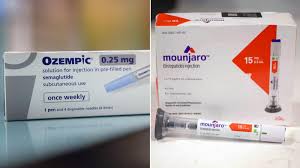Vitamin C: Benefits, Dosage, Side Effects, and Patient Guide
Vitamin C, also known as ascorbic acid, is a water-soluble vitamin naturally found in fruits and vegetables. It plays a vital role in forming blood vessels, cartilage, muscles, and collagen in bones.
It is an antioxidant that helps combat free radicals (reactive oxidative species). These are produced by normal body processes, pollution, and lifestyle habits, leading to oxidative stress. Left unchecked, oxidative stress can cause cell damage linked to heart disease, cancer, and other health conditions.
Severe deficiency leads to scurvy, which causes gum bleeding, anaemia, poor wound healing, and bruising.
How Vitamin C Works in the Body
Vitamin C strengthens the immune system, protects body cells, and reduces oxidative stress. It also:
- Helps synthesize and utilize amino acids
- Boosts collagen production (the most abundant protein in the body)
- Protects against infections
- Supports faster healing

Benefits of Vitamin C
Vitamin C works in the body as a booster to fight against oxidative stress caused by free radicals. As a coenzyme, it helps synthesize and utilize specific amino acids that are helpful to the body. It also works on the production of collagen, which is the most abundant protein in the body, that helps the connective tissue hold the body parts together and function effectively. A diet deficient in Vitamin C would affect the whole body as cells become prone to infections. Vitamin C is effective for the following conditions:
- Irregular heartbeat (atrial fibrillation)
- Low red blood cell count
- Common cold
- High cholesterol and blood pressure
- Lead poisoning
- Wrinkled skin
- High uric acid levels (helps prevent gout attacks)
- Iron deficiency
- Chronic limb pain
Adverse Effects of Excess Vitamin C
When taken as recommended, Vitamin C is generally safe. However, excessive intake (above 2000 mg daily) may cause:
- Heartburn
- Headache
- Nausea and vomiting
- Diarrhea
- Stomach cramps
- Fatigue or insomnia
- Skin irritation
In extreme cases, excessive intake can lead to kidney stones or interfere with medical test results. Note: Always consult your doctor before starting or increasing Vitamin C supplements.
Recommended Dosage
Vitamin C is an essential source of nutrients to the body cells and is obtained from fresh vegetables and fruits, especially the citrus family. However, all of this comes with regulations despite its relative importance to the body. The required or recommended dietary allowance reveals the amount that should be consumed daily.
The Recommended Dietary Allowance (RDA) is:
- Men: 90 mg per day
- Women: 75 mg per day
- Pregnant or breastfeeding women: up to 120 mg per day
- Children: Varies by age (consult your doctor for specifics)
Advice to Patients
It is easy to think, “the more Vitamin C, the better,” but that is not always true. Taking too much can actually backfire. For example, people with a condition called G6PD deficiency (where red blood cells can break down under stress or certain medicines) need to be extra careful and should avoid high doses.
Even with everyday multivitamins, crossing the recommended dose can increase your chances of developing kidney stones. That is why it is always safer to stick with what has been prescribed or simply follow the instructions on the pack.
If you smoke or use tobacco, smoking drains vitamins from your body. That means you will need more dosage in your diet to stay balanced, or better still, consider cutting back or quitting for your overall health.
For pregnant and breastfeeding mums, staying within the recommended daily amount is super important because excess Vitamin C can affect your baby.
Now let us talk about children.
Chewable Vitamin C often tastes sweet like candy, and that makes it easy for kids to take more than they should. But too much can be harmful, especially if they go above 400 mg (ages 1–3), 650 mg (ages 4–8), 1200 mg (ages 9–13), or 1800 mg (ages 14–18) per day. So, parents, keep an eye out.
If you are a cancer patient, please do not take large amounts of Vitamin C on your own. Cancer cells tend to “feed” on vitamins, so it is best to talk with your oncologist before making any changes.
And for anyone living with kidney disease, taking too much Vitamin C can increase oxalate in your urine, which raises the risk of kidney stones and even kidney failure. So, always consult your doctor before supplementing.
Interactions with Medications
Generally, Vitamin C is safe for most people. However, individuals who take supplements are more likely to consume a high amount of it and experience side effects. More severe consequences, such as iron overload and kidney stones, may also result from supplements. Moderate caution must be applied when combining Vitamin C with any of these:
- Aluminium (from antacids)
- Estrogen medications
- Cancer medications
- Warfarin
- Niacin
Always check with our medical team or your doctor before combining Vitamin C with medications.
Vitamin C is an essential nutrient that supports immunity, wound healing, collagen production, and protection against oxidative stress. While fruits and vegetables are the best sources, supplements can be helpful under medical supervision.
Mariam Grey Pharmacy stocks high-quality Vitamin C supplements to help you stay healthy.
We also provide teleconsultation services, so you can speak directly with a doctor or pharmacist about your needs.







